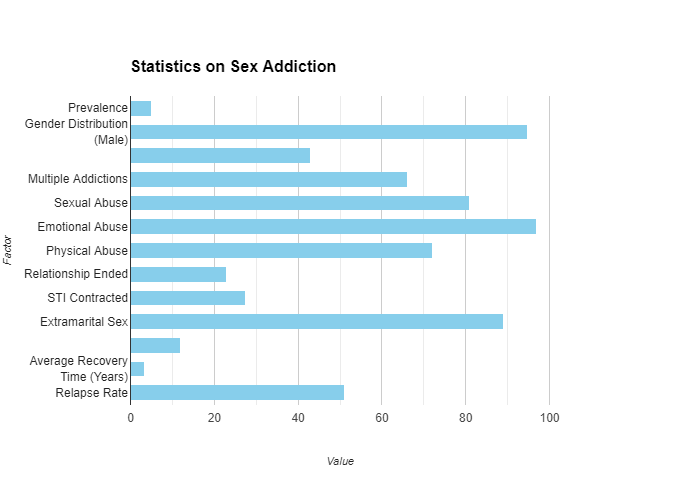Mastermind Groups: Elevate Your Success Today!

Imagine a space where the facade of invincibility crumbles, revealing the raw, unfiltered essence of ambition, fear, and the relentless pursuit of growth. I’m Gordon Grigg, and I help businesses succeed. But let me tell you, the climb to success can be lonely. We all have dreams and ambitions, but do we have the right support system to reach them? Imagine a space where you can share those big goals and those nagging fears and get the accountability to actually make them happen. That’s what a mastermind is. As Tim Hamilton, a seasoned entrepreneur, so aptly puts it:

Let’s explore how a mastermind group can empower your ambitions if that resonates with you.
Understanding the Power of Mastermind Groups
When it comes to personal and business growth, mastermind groups have proven to be an invaluable tool for success. Whether you are an online business owner, a coach, or an aspiring entrepreneur, mastermind groups can provide you with the support, accountability, and guidance you need to thrive. These groups, composed of individuals with similar goals and ambitions, offer a space for members to share their experiences, insights, and challenges. By participating in a mastermind group, you tap into the collective knowledge, skills, and resources of the group, propelling your growth to new heights.
The Origin of Mastermind Groups

The concept of mastermind groups, where peers meet to give each other advice and support, has deep historical roots. The first documented mastermind group in the U.S. was established by Benjamin Franklin in 1727, known as the Junto Group. Franklin, at the age of 21, initiated this group with the aim of mutual improvement, gathering a diverse cohort of 12 members from various professions. They met weekly, discussing topics ranging from morals and politics to natural philosophy, and their collaborations led to the establishment of significant public projects like the first lending library and the University of Pennsylvania.
The structure of the Junto meetings was based around a series of questions Franklin devised, covering intellectual, personal, business, and community topics. These questions facilitated discussion and action within the community, promoting concepts like volunteer firefighting clubs and public hospitals.
The idea of mastermind groups has evolved over the centuries, with various iterations like King Arthur’s Knights of the Round Table in the 12th century, and more structured groups in the 20th century such as Theodore Roosevelt’s mastermind group and The Vagabonds, involving notable figures like Thomas Edison and Henry Ford.
This historical overview highlights the enduring value and impact of mastermind groups in fostering collaboration, innovation, and community improvement, from their earliest instances to the present day.
The Influence of Mastermind Groups on Successful Individuals
Countless successful individuals attribute their achievements to the support and guidance they received from mastermind groups. Henry Ford, founder of the Ford Motor Company, once said, “Coming together is a beginning; keeping together is progress; working together is success.” Ford understood the impact of mastermind groups and surrounded himself with like-minded individuals who could challenge and inspire him. Similarly, the renowned inventor Thomas Edison emerged as a genius due partly to his involvement in mastermind groups. These groups provided a space for Edison to exchange ideas, receive feedback, and collaborate with other brilliant minds of his time. The influence of mastermind groups on successful individuals cannot be understated, as they offer a unique ecosystem of support and encouragement, pushing members towards new heights of achievement.
The Role of a Mastermind Group
Within a mastermind group, members experience personal and business growth through the support and expertise of their peers. These groups catalyze personal transformation, providing a safe space for members to explore new ideas, receive feedback, and challenge their assumptions. Whether you are a business owner looking to expand your network, an individual seeking new perspectives, or someone aiming to acquire new skills, a mastermind group can be a vital resource. Let’s explore the various ways in which mastermind groups can elevate your success.
Enhancing Personal Growth and Success

A mastermind group creates an environment that fosters personal growth and success. The group encourages members to step out of their comfort zones, explore new ideas, and set ambitious goals. The collective expertise and experience of the group members provide valuable insights and perspectives, helping individuals identify blind spots and discover new opportunities. By exchanging ideas and challenging each other’s thinking, mastermind group members can expand their knowledge, overcome obstacles, and accelerate their personal growth journey. With the support and accountability of like-minded peers, individuals can develop new skills, gain clarity in their vision, and make significant strides towards achieving their personal and professional goals.
Positive Peer Pressure and Accountability
One of the key benefits of being part of a mastermind group is the positive peer pressure and accountability it offers. Group members hold each other to high standards, ensuring everyone stays committed to their goals and takes consistent action. This culture of accountability fosters discipline, focus, and determination, helping members overcome challenges and stay on track. Moreover, mastermind groups provide a safe space for total honesty. Members can openly share their successes, failures, and concerns without fear of judgment. Members receive valuable feedback, encouragement, and fresh perspectives through this transparency, enabling them to make informed decisions and course corrections when needed.
The Power of Collaboration and Collective Intelligence
Within a mastermind group, collaboration and collective intelligence are at the forefront. Group members bring together their unique skills, experiences, and knowledge, creating a powerful network of resources. The diverse perspectives and ideas generated through collaboration often lead to innovative solutions, creative business strategies, and breakthroughs. By leveraging the group’s collective intelligence, members broaden their horizons, explore new possibilities, and find solutions to complex challenges. Through this collaborative environment, individuals can tap into the group’s collective genius, accelerating their personal and business growth like never before.
Leveraging the Power of Proximity
In today’s digital age, mastermind groups have expanded beyond geographical boundaries, thanks to the power of proximity provided by technology. While physical meetups are still valuable, online mastermind groups offer opportunities for business owners and entrepreneurs worldwide to connect and collaborate. This proximity brings together individuals from diverse backgrounds, industries, and expertise, fostering a rich network of ideas, experiences, and resources. Whether discussing social media marketing, real estate investments, or tech innovation, members of an online mastermind group can tap into a global pool of insights and knowledge, creating a truly transformative experience.
Acquiring Skills and Knowledge from Experts

Mastermind groups serve as a treasure trove of skills, knowledge, and expertise, with members possessing years of experience in various industries. By engaging with the group, you gain access to valuable insights and receive mentorship from successful entrepreneurs, industry experts, and seasoned professionals. Here are some ways you can acquire skills and knowledge from experts within a mastermind group:
- Attend educational webinars and workshops conducted by experts within the group.
- Participate in group discussions and ask questions to tap into members’ expertise.
- Share your business challenges and receive guidance from members who have successfully overcome similar obstacles.
- Engage in one-on-one mentorship opportunities offered by experienced members.
- Benefit from the collective years of experience of the group, gaining valuable tips, tricks, and best practices.
The Success Alliance website features several mastermind group success stories, highlighting the transformative experiences of its members and facilitators. These stories range from entrepreneurs in the life sciences industry grappling with personal and professional conflicts to individuals finding immense value in the support, respect, and trust built within their groups. The narratives emphasize the power of mastermind groups in providing brainstorming opportunities, fostering personal growth, and enhancing business success through collaborative efforts. For more detailed stories and insights, visit The Success Alliance’s success stories page.
How to Choose the Right Mastermind Group?
Think of a mastermind group as a secret weapon for success. It’s a place where driven individuals, just like you, come together to strategize, problem-solve, and push each other to new heights. But how do you find your tribe of high-achievers? Let’s dive in!
1. Tap into the Power of Your Network
Your network is a gold mine! Colleagues, connections, even old friends – they might be the key to unlocking your perfect mastermind group. Think beyond business cards. Reach out to folks at local schools, community groups, and professional organizations. Start conversations, let them know you’re on the hunt for a mastermind, and see where those connections lead. Remember, sometimes, the most unexpected connections yield the best results!
2. Embrace the Digital Revolution
The internet is your oyster! Websites and platforms like Meetup.com are buzzing with mastermind groups tailored to different industries and goals. Search for “mastermind groups near me” or explore virtual events like Tony Robbins’ Business Mastery. These events connect you with a global network of like-minded individuals hungry for growth. Looking for more personalized support? Consider Business Coaching – Tony’s proven methods have transformed countless lives, and yours could be next!
You can find mistermind groups online for free here
3. Aim for the Stars
When it comes to your mastermind group, don’t settle for average. Surround yourself with people who are already a few steps ahead, those who inspire and challenge you to reach higher. Think of your mastermind as an elite team – you want players with fierce determination and unwavering support. A skilled facilitator is a bonus, keeping the group focused and helping you smash those goals!
Aligning Mastermind Group with Your Goals

To ensure that a mastermind group aligns with your goals, both personal and business, consider the following:
- Define your life and business goals clearly before searching for a mastermind group.
- Look for groups that explicitly state their focus areas and how they align with your goals.
- Depending on your priorities, assess whether the group encourages personal growth, skill acquisition, or business development.
- Consider whether the group offers resources, educational content, or networking opportunities catering to your goals.
- Evaluate the group’s track record of helping members succeed in their personal and business endeavors.
Considering the Size and Structure of the Group
The size and structure of a mastermind group can significantly impact your experience within the group. Here are some considerations for choosing the right group based on size and structure:
- Determine if you prefer a small, intimate group for focused discussions and personalized attention.
- Assess whether a larger group, with a broader network of members, aligns better with your goals and preferences.
- Consider whether the group focuses on specific industries, such as startups or small businesses, to ensure relevance to your needs.
- Reflect on how the group’s size and structure may impact your ability to participate and engage with fellow members actively.
- Evaluate whether the group offers tiered memberships, such as an inner circle or premium mastermind option, providing additional benefits tailored to your goals.
Evaluating the Expertise of the Group Members
The expertise of the group members plays a crucial role in the value you derive from a mastermind group. Here are some criteria for evaluating the expertise of group members:
- Assess whether members have experience in your specific industry or domain.
- Look for diverse backgrounds and skill sets among group members, as this brings different perspectives and knowledge to the table.
- Consider the qualifications of group members, such as educational background, certifications, or years of experience.
- Explore whether mentorship opportunities are available within the group, where members can share their expertise and mentor others.
- Seek out mastermind groups where members have achieved success in areas similar to yours, offering valuable insights and guidance.
The Bottom Line:
A mastermind group isn’t just about networking, it’s about creating a space where ambition thrives and support is unconditional. If you’re ready to level up your business and your life, it’s time to start your search!
Building Your Own Mastermind Group

You can build your own group if you can’t find a mastermind group that suits your needs. I have been a member and leader of several. If you need help, you can contact me at any time. Here are a few steps to get started:
Identifying Potential Members
Building a successful mastermind group starts with identifying potential members who align with your goals, values, and expertise. Consider the following:
- Look for individuals who share similar interests, ambitions, and values.
- Seek out business owners, marketers, or professionals from diverse industries to bring different perspectives to the group.
- Identify people committed to personal and business growth, open to new ideas, and willing to participate actively in group discussions.
- Seek individuals who value confidentiality, trust, and collaboration, as these qualities are crucial for an effective mastermind group.
- Consider potential members with relevant experience, expertise, or success in areas of interest to the group, such as coaching, tech, or business development.
Conclusion: Unlock Your Potential with the Power of Mastermind Groups

Mastermind groups have a proven track record of propelling individuals towards greater success. These collaborative spaces encourage growth, accountability, and innovation—from Benjamin Franklin’s Junto group centuries ago to the modern masterminds run by people like Grant Cardone and Joe Polish. Whether you’re an entrepreneur, coach, or aspiring business leader, a mastermind group can be your secret weapon.
Imagine a confidential setting where you can share your biggest goals, your nagging doubts, and receive honest feedback from people who genuinely want you to succeed. That’s the essence of a mastermind group. By joining forces with a select group of ambitious individuals, you’ll benefit from:
- Unwavering support and accountability: Never feel alone in your journey again. Your group will push you to stay on track and celebrate your victories.
- Diverse perspectives and problem-solving: Tap into the collective wisdom of your mastermind to overcome any obstacle and develop creative solutions.
- Mentorship and knowledge-sharing: Learn from the successes and failures of others, accelerating your learning curve.
- Personal and professional growth: Develop your skills, challenge your mindset, and achieve goals you never thought possible.
The beauty of mastermind groups today is their flexibility. You can find in-person groups in most major cities or leverage technology to join the best mastermind groups online, regardless of your location.
Ready to take action? If you’re serious about reaching new heights, I, Gordon Grigg, business coach in Nashville, can guide you. I can help you find the perfect mastermind group or even support you in creating your own.
Important Considerations:
- Investment: While some mastermind groups are free, high-level ones can have significant membership costs. Weigh the potential return on investment.
- Time commitment: Be prepared to dedicate time to regular meetings and active participation.
- Finding the right fit: Research groups to ensure alignment with your goals and personality.
Don’t underestimate the transformative power of a mastermind group. It could be the catalyst that takes your personal and business success to the next level! Contact me today, and let’s start your journey toward a bright future.
Mastermind Groups: Elevate Your Success Today! Read More »














